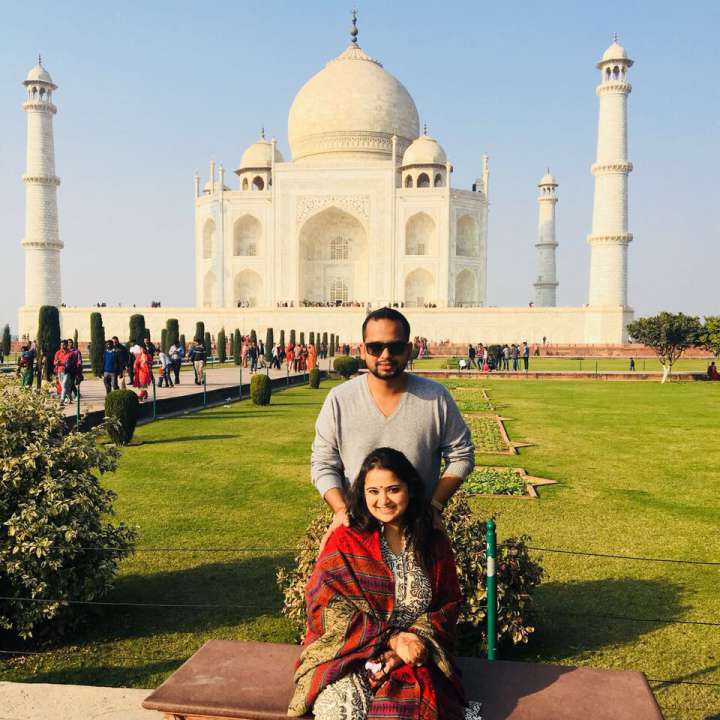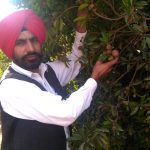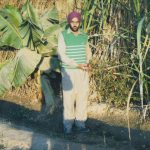
Ankur and Ankita Singh
Graduated From Symbiosis This Husband-Wife Duo, Giving a New Definition to Agribusiness with Their New Concept of Dairy Farming
What life do you imagine after doing MBA in Agribusiness from a prestigious university of India, maybe an Agricultural Analyst, Farm Appraiser, Market Analyst, Quality Controller, or Agribusiness Marketing Coordinator?
Well, all these are dream job profiles for MBA Agriculture graduates and it will become cherry on the top if you have done your MBA from an esteemed university like Symbiosis, Pune. But there are very few people who instead of being part of a multinational organization, prefer to emerge as a start-up which gives true meaning to their skills and adequacy.
Urban Dairy- An initiative taken by a power couple- Ankur and Ankita with the mission to redefine the concept of dairy farming with their distinctive idea of selling milk in raw form. This farm is located in district Unnao, 55 kilometres from Kanpur city.
Before starting this milk venture, Ankur was working as a Bio-technologist and Agriculturist in different companies (total work experience 2 years). In 2014, Ankur tied love knot with his friend Ankita, who also did MBA from Symbiosis, Pune with him.
Well, this idea of selling raw milk came into accomplishment after Ankur’s nephew came from abroad to visit him. As this was the first experience of Ankur’s nephew in India, so he decided to make it special.
Ankur especially bought an indigenous breed of cow- Shahiwal and started rearing her for milk purpose. Although the purpose of raw cow milk was only for Ankur’s nephew as he had realised that unpasteurized cow milk is more healthy and tastier than packed milk. Slowly, the whole family started drinking the cow milk and everyone liked it.
Ankur was fond of animals since childhood, but after this instance, he thought why to compromise with the health, and in 2015 both husband and wife (Ankur & Ankita) decided to start their own dairy farm. Ankur attended a short training at NDRI Karnal before starting dairy farming and in the meanwhile, his wife Ankita looked after all the construction work of the farm. They began with 6 Holstein cross breed cows, and now it has been 3 years and they have 34 Holstein/ Jersey cross breed cows and 7 indigenous cows (Sahiwal, Red Sindhi, Tharparker) at their farm.
Urban Dairy is what they thought of naming their brand, blending the rural theme with the city, a fusion of two regions, which are completely opposite to each other. From managing dairy farm to product marketing & development, they did not leave even a single step to reach where they are today. The whole farm is build-out in 4 acres of land and there are 7 workers for its maintenance. Bathing, feeding, maintaining hygiene of cows and other farm-related work are done manually by the worker and milking is done by the milking machine as well as manually by hands as per the comfort of cow. Both Ankur and Ankita make it a point to visit the farm once daily without fail. They not only like to spend most of their time at the farm but also it helps them supervise the workers in a better way. The entire milling and bottling and transport is under strict supervision of the founders.
“Ankur: We also prepare the cow feed ourselves, because milk yield & cow’s health totally depends on the feed and we never compromise on this. The cow feed formula that we follow is- 33% protein, 33% industrial waste (choker), 33% grains (maize, chickpea) and extra minerals.”
Other than dairy farming they are also actively involved in organic farming of vegetables. They have leased an extra 4 acres land. Earlier Ankita used that land as a kitchen garden. She never used any fertilizer/pesticide on that land other than cow dung. Now the land has totally turned into an organic piece of fertile acreage which they are using for farming wheat, chickpea, carrot, garlic, chillies, coriander, and seasonal veggies. They use farm crops for the cow’s feed and home purpose.
“In the beginning, my HF crossbreed cow was giving 12-litre milk, after second pregnancy she started giving 18-litre milk and now she is pregnant the third time and we are expecting 24-litre milk. There is a possibility of increase in milk production imminently.”
Instead of carrying milk in large milk containers to the customers and using primitive milk measuring ladle, they have come up with an innovative concept to enhance their product image. They pack the raw milk directly into glass bottles after filtration process and then deliver it to the door of the customers.
People have accepted their product with open arms. Till today, i.e. 3 years and they haven’t used a single marketing strategy or advertising to allure the customer to use their product. The entire market they are catering to, has been formed through word-of-mouth publicity by their existing customers. The response has motivated them to a level that they have started with the production of paneer, ghee and other milk based dairy products. The positive response from customers has increased their sale.
They have their own distribution network in the city for milk sale and by seeing their advancement slowly with the time it will increase to manifolds.
Indigenous cow breeds milk production capacity is not that high, and he wants to develop a new cow breed by cross-breeding indigenous cows which have good milk production capacity as the milk of our Indigenous breeds is considered better in quality and proven to have multiple health benefits for humans.
According to him, milk can be kept at 2 degree centigrade for one week in healthy condition, and for that purpose, he wants to invest in chiller storage in the coming time, to store the milk for long time and use it for multiple purposes.
“Dairy farmers should never neglect the hygiene and care of their cows, they should care about them as they care for their own health. And before starting dairy farming every farmer must acquire knowledge and keep themselves updated with the current dairy farming trends for better future. Dairy farming can only be profitable if the animals in your farm are happy. The selling price of your product wouldn’t get you to earn profits, but a happy animal can definitely help you earn good profits.”









